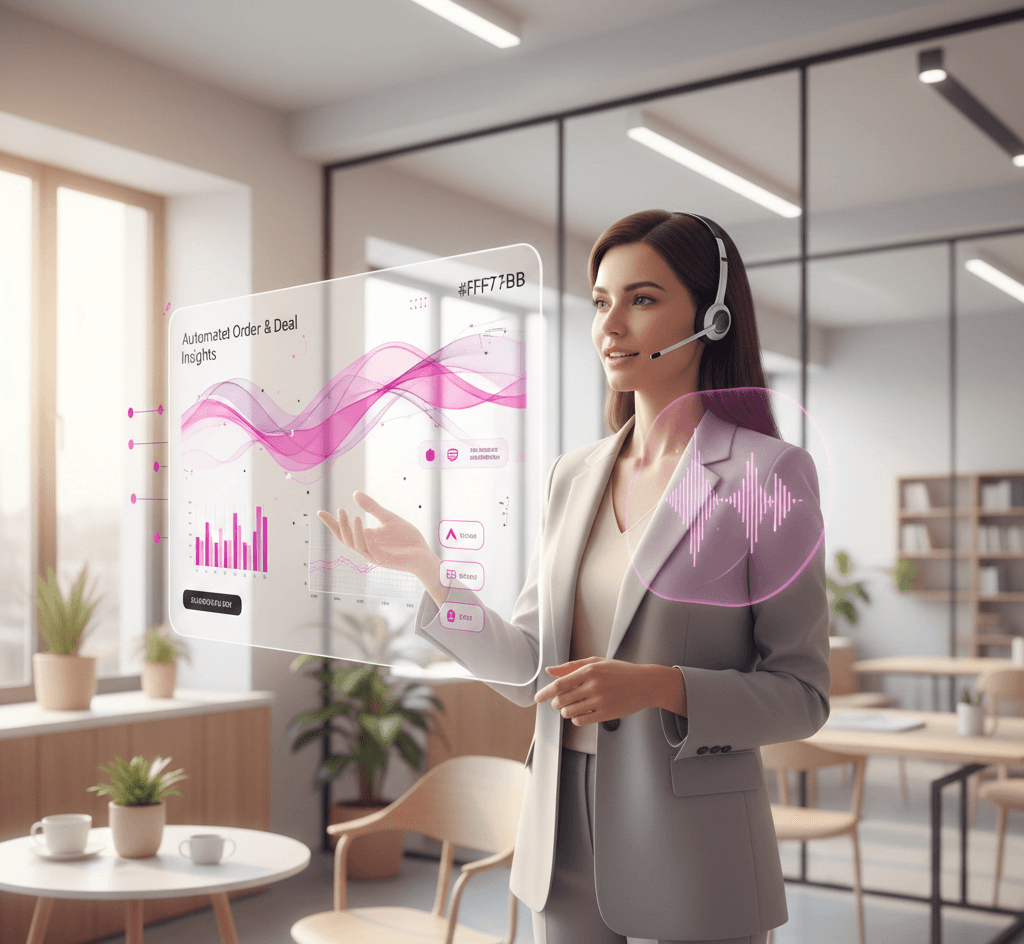In today’s digital marketplace, AI chatbots stand at the forefront of a revolution. Firstly, they are transforming how businesses interact with their customers and, secondly, pushing the boundaries of sales performance. Far beyond mere automated responders, these AI-powered assistants are redefining the essence of customer service and sales strategy. Importantly, with the capacity to understand nuanced customer needs, navigate complex sales funnels, and even seal the deal, AI chatbots have become an integral part of the sales landscape. Consequently, this exploration delves into the remarkable world of AI chatbots, emphasizing their critical role in bolstering sales and enhancing customer engagement.
Furthermore, highlighting the innovative capabilities of SalesCloser AI, this blog will unveil how this state-of-the-art platform is setting new standards in personalized customer interaction and sales efficiency. Therefore, join us as we embark on a journey through the evolving landscape of digital sales support, where AI chatbots emerge as key players in crafting the future of customer relations and sales success.
Understanding AI Chatbots
AI chatbots are software applications equipped with artificial intelligence (AI). They simulate human conversation through text chats or voice commands. Unlike standard chatbots that operate based on pre-defined rules, AI chatbots leverage machine learning (ML) and natural language processing (NLP). This allows them to understand context, learn from interactions, and provide personalized responses.
For a deeper dive into how AI chatbots work, check out this article on the basics of ML and NLP.
The Importance of AI Chatbots for Sales Support
AI chatbots are becoming indispensable in the sales domain for several reasons:
1. Availability
AI chatbots provide unparalleled 24/7 support. Unlike human agents, who require breaks, and vacations, and have limited working hours, AI chatbots are always on. This continuous availability means that whenever a potential lead decides to inquire about a service or a product—be it during the early morning hours or late at night—your business is ready to engage. This constant readiness ensures that opportunities for engagement and sales are maximized, eliminating the risk of losing potential leads to competitors who might respond faster.
2. Efficiency
The ability of chatbots to handle multiple inquiries simultaneously is a game-changer for customer service efficiency. In a traditional setup, a human agent can only engage with one customer at a time, which can lead to increased wait times and a backlog of queries during peak hours. AI chatbots, however, can interact with dozens, if not hundreds, of customers simultaneously, drastically reducing wait times and significantly improving the overall customer experience. This efficiency not only boosts customer satisfaction but also allows businesses to serve a larger audience without compromising service quality. Insights into chatbot efficiency can be found here.
3. Personalization
One of the most compelling features of AI chatbots is their ability to offer personalized interactions. Through the analysis of customer data, chatbots can tailor their conversations to meet the specific needs and preferences of each customer. This capability extends beyond addressing the customer by name to include recommendations based on past purchases, browsing history, and even predictive needs analysis. Such personalized interactions foster a deeper connection between the brand and the customer, enhancing trust and loyalty, which are crucial for conversion and retention. Learn more about chatbot personalization here.
4. Cost-Effectiveness
Deploying AI chatbots is significantly more cost-effective than maintaining a large team of human sales representatives. Chatbots can automate a wide range of repetitive tasks such as answering frequently asked questions, booking appointments, and providing product information. This automation allows human agents to focus their efforts on handling more complex inquiries that require human empathy and negotiation skills, thereby optimizing the workforce and reducing operational costs. Moreover, the initial investment in setting up a chatbot can be quickly recouped through the efficiencies and increased sales it brings. An analysis of chatbot cost savings is available here.
5. Scalability
As businesses grow, the volume of customer interactions typically increases. Scaling customer service operations to meet this demand can be a challenge, requiring significant investment in hiring and training additional staff. AI chatbots, on the other hand, can easily scale to handle an increased load without the need for proportionate increases in investment. This scalability ensures that the quality of customer service remains consistent, regardless of business size or customer volume, making AI chatbots an essential tool for growing businesses. For growth strategies utilizing AI chatbots, see this guide.
SalesCloser AI: A New Era of Sales Support
SalesCloser AI stands out in the realm of AI chatbots for sales support. It’s designed specifically to enhance sales processes and boost conversions. Here’s how it makes a difference:
Lead Qualification
SalesCloser AI efficiently sorts through leads to identify the most promising ones. This ensures sales teams focus their efforts where they are most likely to succeed.
Engagement
The platform engages prospects through personalized conversations. It answers queries, provides information, and guides them through the sales funnel.
Closing Deals
Perhaps most impressively, SalesCloser AI is adept at closing deals. It can make product recommendations and even handle transactions, significantly increasing conversion rates.
Analytics
SalesCloser AI offers valuable insights into customer interactions. This data helps businesses refine their sales strategies and improve chatbot performance over time.
Implementing AI Chatbots for Sales Support
Integrating AI chatbots into your sales strategy requires careful planning. Start by defining your goals. Are you looking to increase lead generation, improve lead qualification, or boost sales conversions? Once your objectives are clear, choose a platform like SalesCloser AI that aligns with your goals.
Training your chatbot is crucial. It should understand your products, services, and sales processes. Regular updates and refinements are also necessary to ensure it continues to meet customer needs effectively.
Conclusion
In conclusion, AI chatbots are redefining the paradigms of sales support, offering solutions that are not only technologically advanced but also strategically aligned with the goals of modern businesses. Their ability to provide round-the-clock availability, efficiency, personalization, cost-effectiveness, and scalability makes them indispensable assets in today’s competitive market. However, AI chatbots represent a significant leap forward in sales support. They offer businesses a powerful tool to engage customers, qualify leads, and even close sales. With platforms like SalesCloser AI, implementing an AI chatbot has never been easier or more effective. By leveraging AI chatbots, businesses can enhance their sales processes, offer better customer experiences, and achieve higher conversion rates.
FAQs
Q: Can AI chatbots replace human sales representatives?
A: While AI chatbots can handle many aspects of the sales process, they can’t replace the human touch entirely. They are best used in conjunction with human agents, handling routine queries and transactions, allowing humans to tackle more complex sales tasks.
Q: Are AI chatbots difficult to integrate?
A: Integration complexity varies depending on the platform and your existing systems. Solutions like SalesCloser AI are designed for ease of integration, offering support to ensure a smooth transition.
Q: Can AI chatbots handle complex customer queries?
A: Yes, advanced AI chatbots can understand and respond to complex queries. They use NLP and ML to interpret questions and provide accurate, contextually relevant answers.
Q: How do AI chatbots learn?
A: AI chatbots learn through machine learning algorithms. They analyze past interactions to improve their responses over time. This continuous learning process allows them to become more effective in handling queries and engaging customers.
Q: Are AI chatbots secure?
A: Yes, reputable AI chatbot platforms prioritize security. They use encryption and follow best practices to protect customer data. However, businesses should also ensure they comply with data protection regulations.






